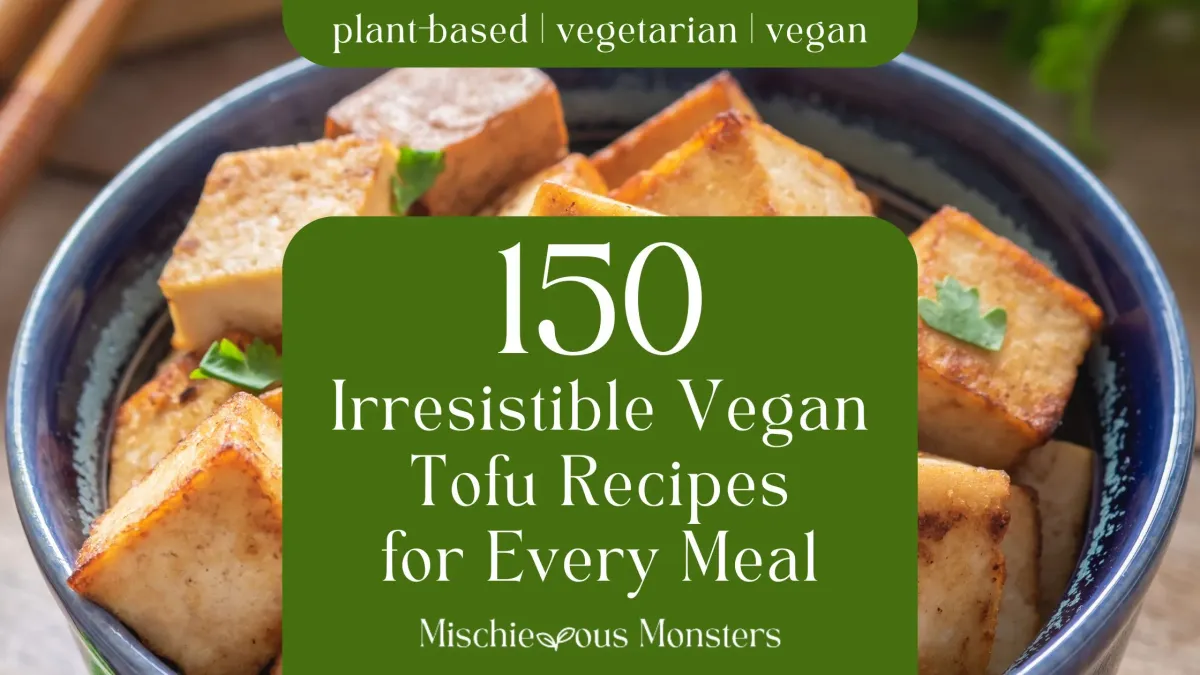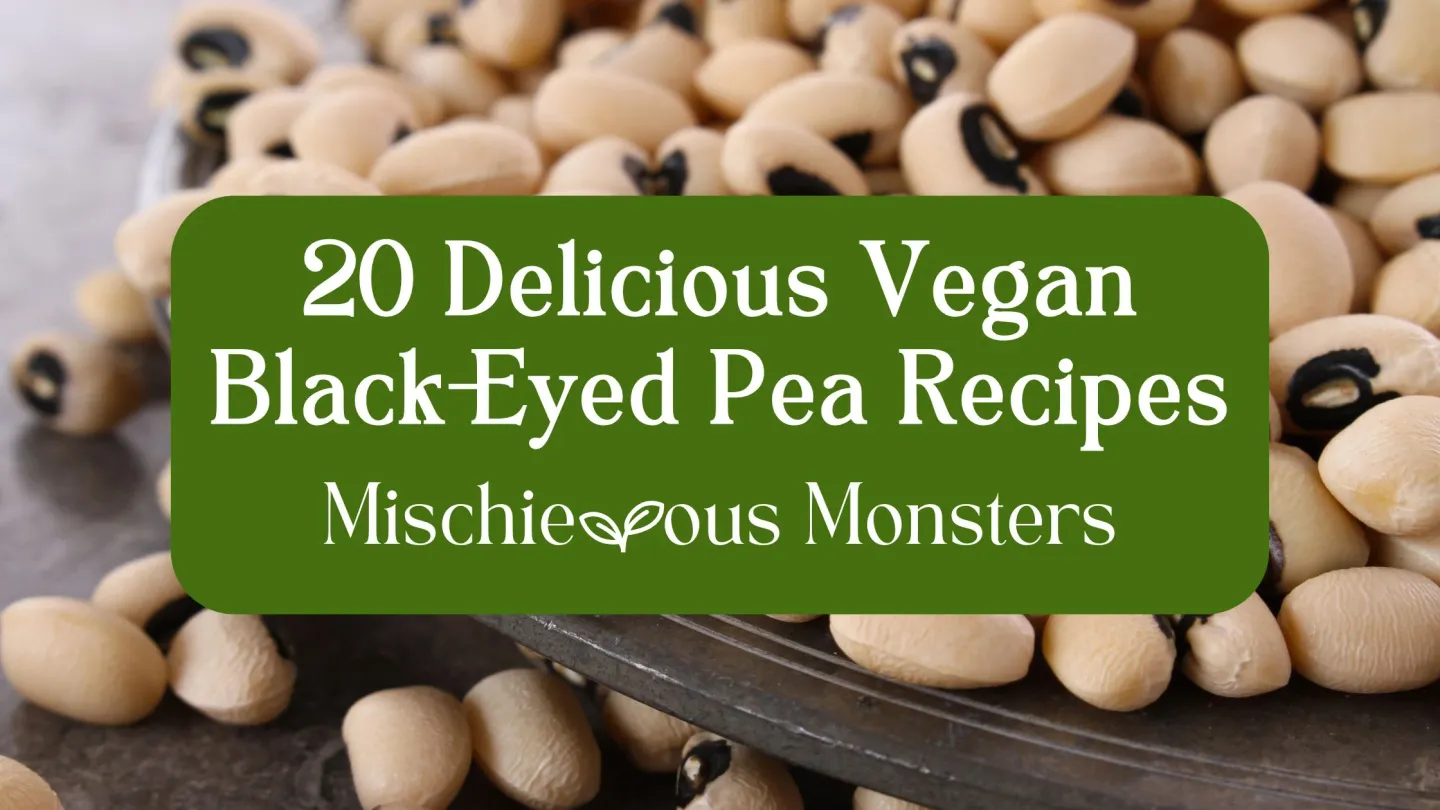
Why Black-Eyed Peas Deserve a Spot in Your Kitchen
Black-eyed peas aren't just for New Year's luck. They're a year-round staple packed with protein, fiber, and comfort in every bite.
These humble little beans shine in hearty stews, cozy curries, fresh salads, and Southern-inspired classics. Whether you're craving something soul-warming for dinner or a quick, nourishing dish for lunch, black-eyed peas can do it all.
In this roundup, you'll find out why you should eat black-eyed peas, what makes them beans instead of peas, and some recipes that prove just how versatile (and delicious) they can be. From simple weeknight meals to crowd-pleasing favorites, there's something here for every table.

A Superfood for Heart Health and More
Black-eyed peas are a nutritious and versatile legume that offers numerous health benefits. Here are some of the key health benefits of black-eyed peas.
1. High in Protein
Black-eyed peas are a great source of plant-based protein, offering around 13 grams of protein per cup (cooked). This makes them an excellent option for vegetarians and vegans looking to meet their protein needs. Protein is essential for muscle repair, immune function, and overall body maintenance.
2. Rich in Fiber
Black-eyed peas are high in dietary fiber, with about 9 grams per cooked cup. The fiber content promotes digestive health by aiding in regular bowel movements, preventing constipation, and supporting the growth of beneficial gut bacteria. Fiber also helps regulate blood sugar levels, lowers cholesterol, and contributes to heart health.
3. Supports Heart Health
Black-eyed peas are heart-healthy due to their high fiber, potassium, and magnesium content. Fiber helps lower LDL (bad) cholesterol levels, while potassium helps regulate blood pressure. Magnesium supports heart muscle function and helps maintain a steady heartbeat. Consuming black-eyed peas regularly can help reduce the risk of cardiovascular diseases.
4. Helps Regulate Blood Sugar
Black-eyed peas have a low glycemic index, which means they cause a slow and steady rise in blood sugar levels. The fiber and protein in black-eyed peas help slow down the absorption of carbohydrates, making them an excellent food choice for individuals with diabetes or those looking to manage their blood sugar levels.
5. Promotes Weight Loss
Black-eyed peas can aid in weight management due to their high fiber and protein content. The fiber helps increase feelings of fullness, reducing overall calorie intake, while the protein helps maintain muscle mass and boost metabolism. In addition, black-eyed peas are low in fat and calories, making them a great addition to a weight-loss diet.
6. Rich in Antioxidants
Black-eyed peas contain antioxidants, such as flavonoids and polyphenols, which help protect the body from oxidative stress and free radical damage. These antioxidants may help reduce the risk of chronic diseases like heart disease, cancer, and diabetes by neutralizing harmful molecules in the body.
7. Support Bone Health
Black-eyed peas are a good source of essential minerals like calcium, magnesium, and phosphorus, all of which contribute to healthy bones. Regular consumption of black-eyed peas can help maintain bone strength and reduce the risk of bone-related conditions, such as osteoporosis.
8. Boost Immune System
Black-eyed peas are rich in zinc, iron, and B vitamins, which play an important role in supporting immune function. Zinc helps the immune system fight infections, while iron supports the production of red blood cells and helps prevent anemia. B vitamins, particularly folate and B6, are vital for immune cell production and overall immune defense.
9. Rich in Essential Nutrients
Black-eyed peas are packed with essential vitamins and minerals, including folate, iron, potassium, and magnesium. Folate is necessary for cell growth and DNA synthesis, while iron helps prevent anemia and supports oxygen transport in the blood. Potassium helps regulate blood pressure, and magnesium supports muscle and nerve function.
10. Improve Digestion
The fiber content in black-eyed peas is beneficial for digestive health. Fiber helps promote regular bowel movements, prevent constipation, and support the growth of healthy gut bacteria. A healthy digestive system is essential for optimal nutrient absorption and overall well-being.

Why Black-Eyed Peas Are Actually Beans (Not Peas!)
Black-eyed peas are actually beans, not peas, despite their name. Here's why.
1. Botanical Classification
Black-eyed peas belong to the Vigna unguiculata species, which is part of the legume family (Fabaceae). This places them in the same group as beans like mung beans and cowpeas, rather than true peas (Pisum sativum).
2. Growth and Structure
Unlike true peas, which belong to the Pisum genus and typically grow in cool seasons with tendrils, black-eyed peas grow as warm-season bush or vine plants, similar to other beans.
3. Nutritional and Culinary Similarities
Black-eyed peas have a texture, taste, and nutritional profile closer to beans than peas. They are high in protein and fiber, much like other beans, and are used in similar ways in cooking (soups, stews, and salads).
So, despite their misleading name, black-eyed peas are beans in terms of botany, growth habits, and culinary use. 😊

Nutritional Highlights of Cooked Black-Eyed Peas (Per 100g)
| Nutrient | Amount (Metric) | Amount (Imperial) |
|---|---|---|
| Calories | 120 kcal | 120 kcal |
| Protein | 8.0 g | 0.28 oz |
| Carbohydrates | 21.6 g | 0.76 oz |
| Fiber | 5.1 g | 0.18 oz |
| Fat | 0.9 g | 0.03 oz |
| Folate (Vitamin B9) | 210 µg (53% DV) | 210 µg (53% DV) |
| Iron | 1.8 mg (10% DV) | 0.06 oz (10% DV) |
| Magnesium | 48 mg (12% DV) | 0.0017 oz (12% DV) |
| Potassium | 502 mg (14% DV) | 0.0177 oz (14% DV) |
| Vitamin C | 0 mg (0% DV) | 0 mg (0% DV) |
Black-eyed peas are a nutrient-dense legume that provide numerous health benefits, such as supporting heart health, balancing blood sugar, aiding in weight management, and strengthening the immune system.
Packed with protein, fiber, antioxidants, and vital vitamins and minerals, they make an excellent addition to a well-rounded diet. Whether included in fritters, burgers, dips, or dals, black-eyed peas offer a flavorful and nutritious option for any meal.

20 Mouthwatering Vegan Black-Eyed Pea Recipes
Black-eyed peas are a humble legume with big flavor, bringing protein and comfort to every bite. From smoky stews to refreshing salads, they're versatile enough for weeknight meals or special gatherings.
Explore these unbelievable black-eyed pea recipes and add a wholesome plant-based twist to your table!
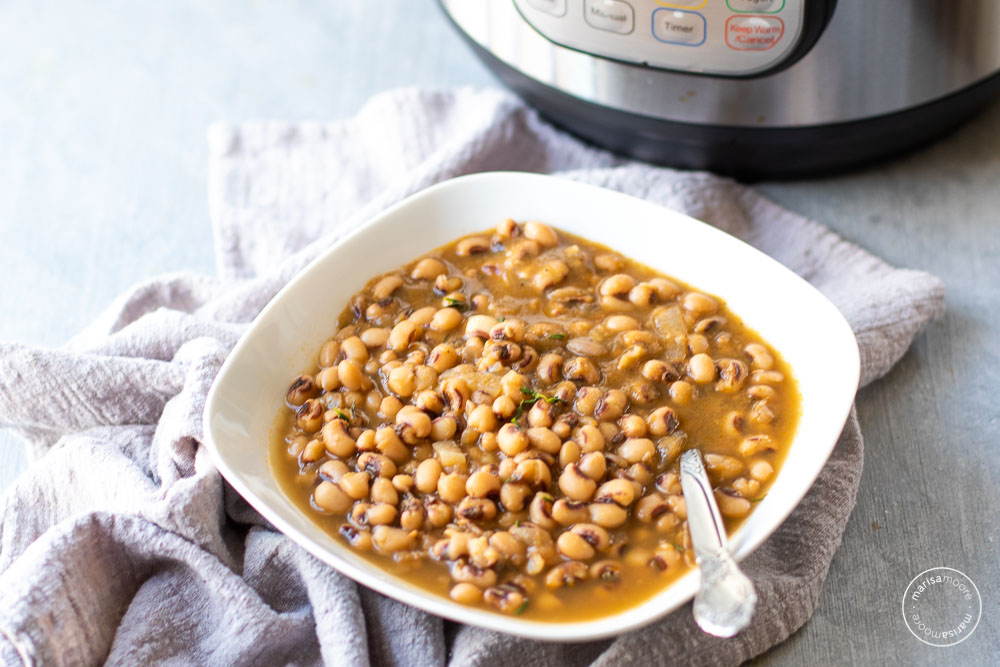
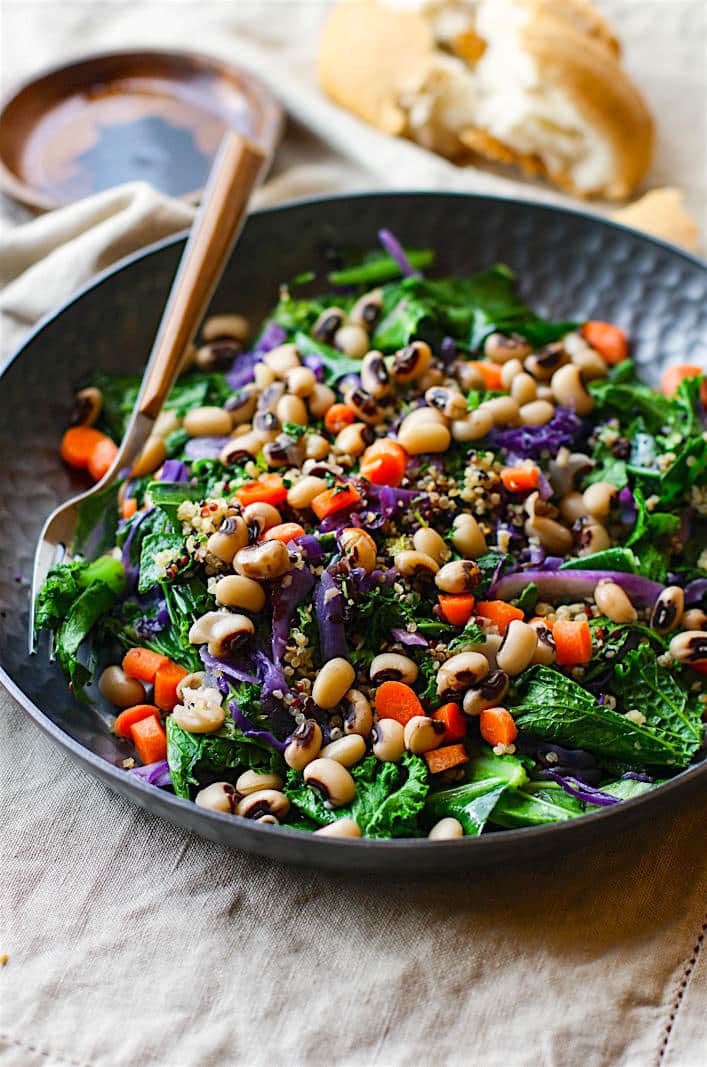


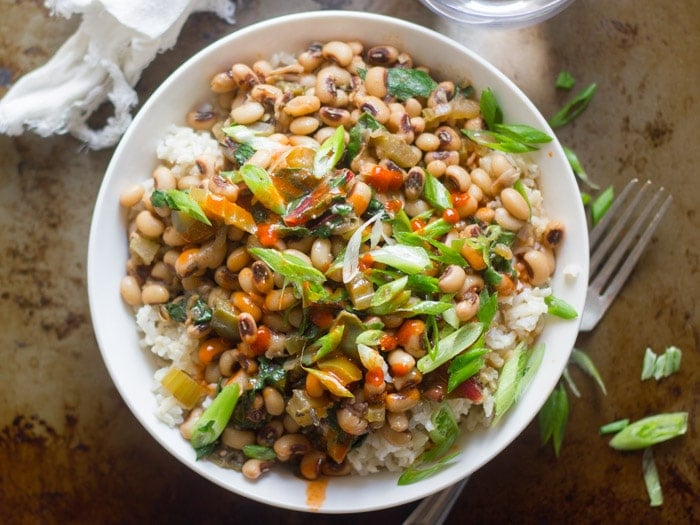
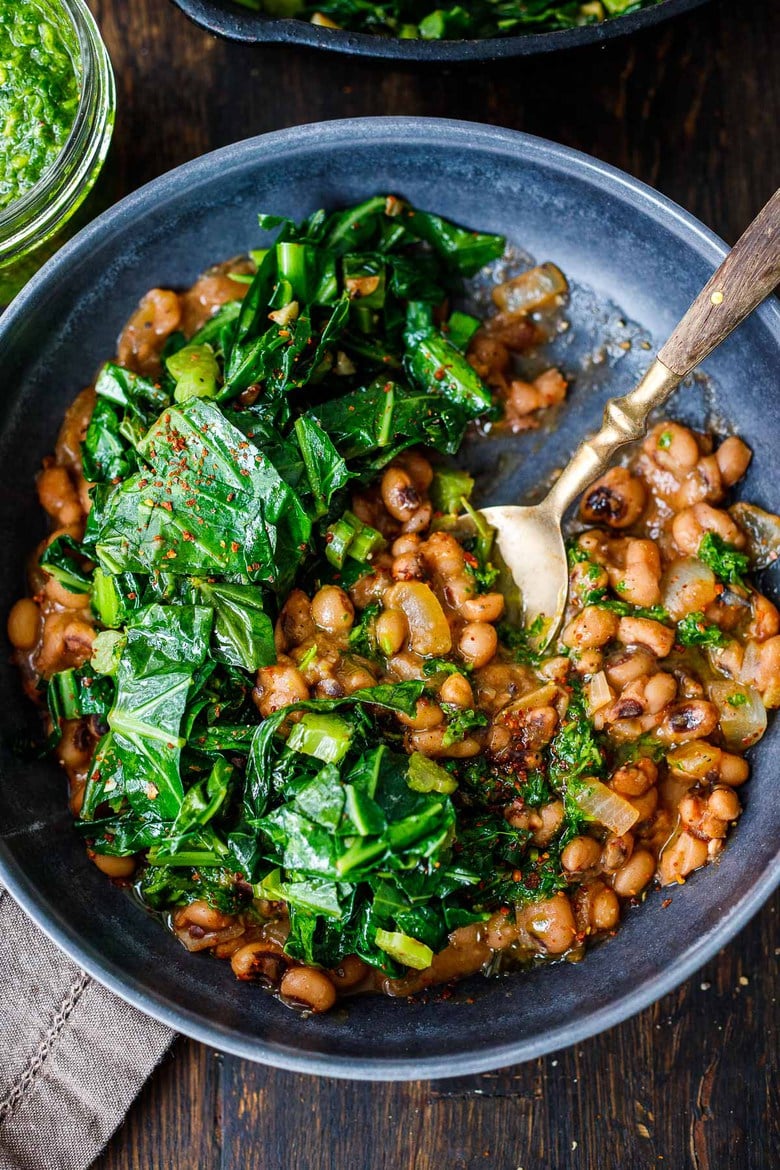
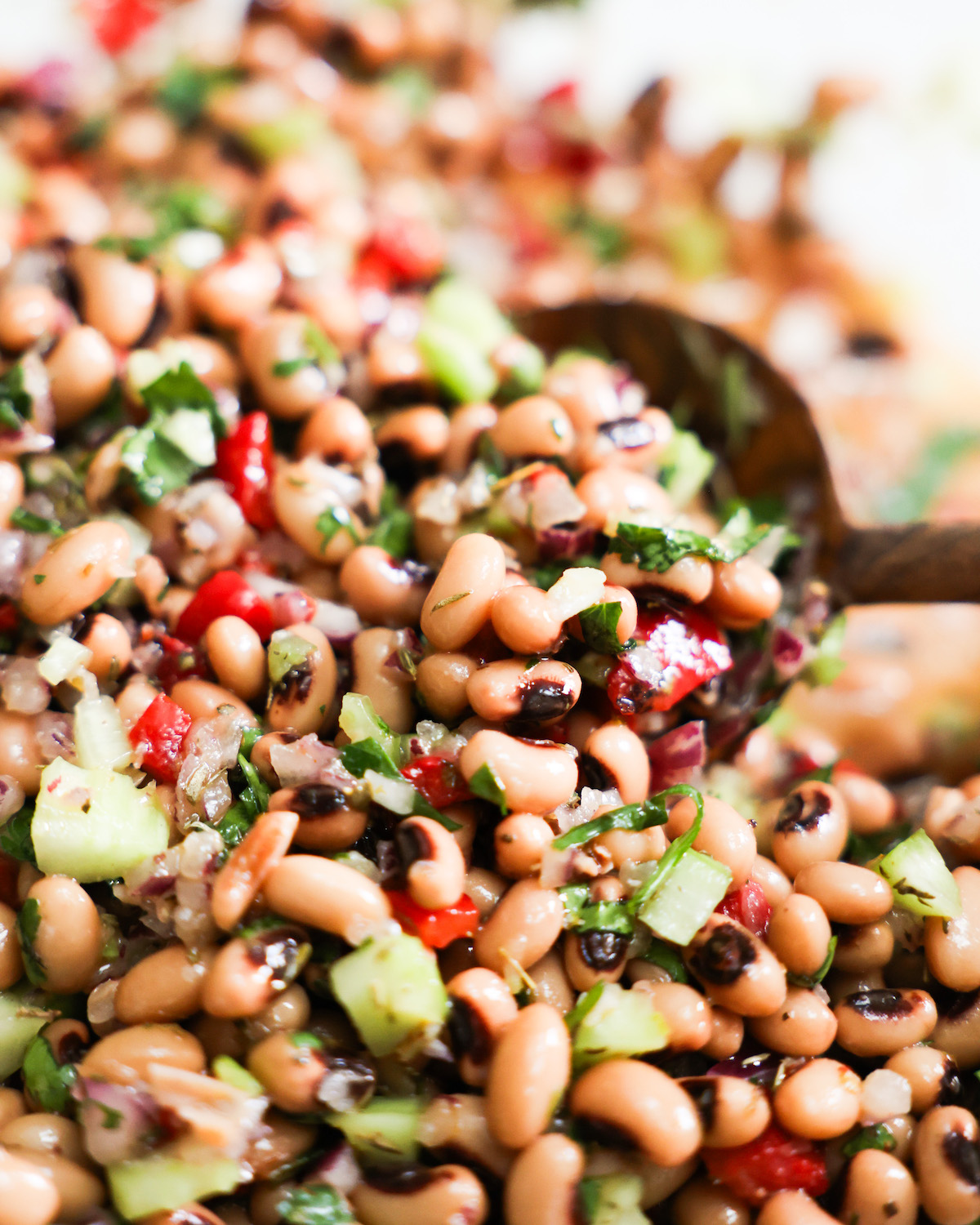
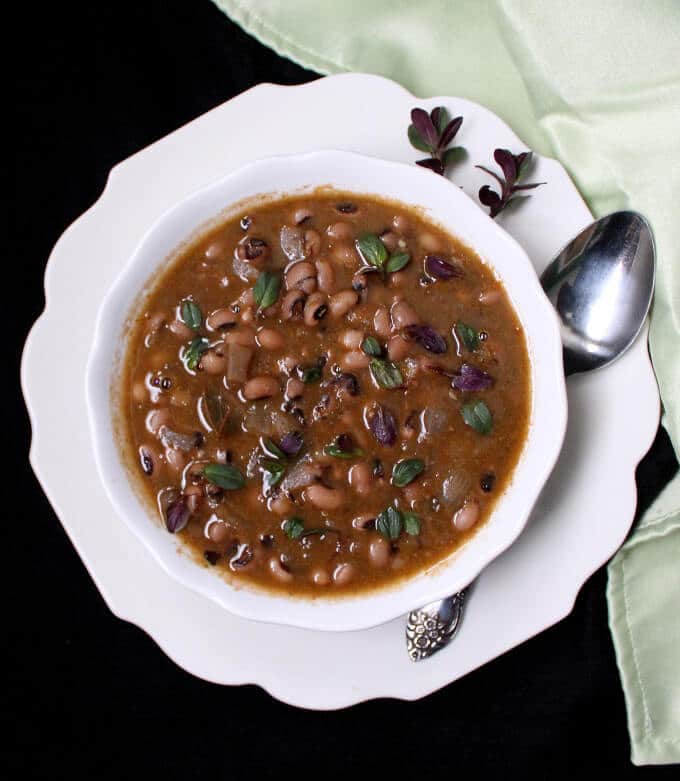

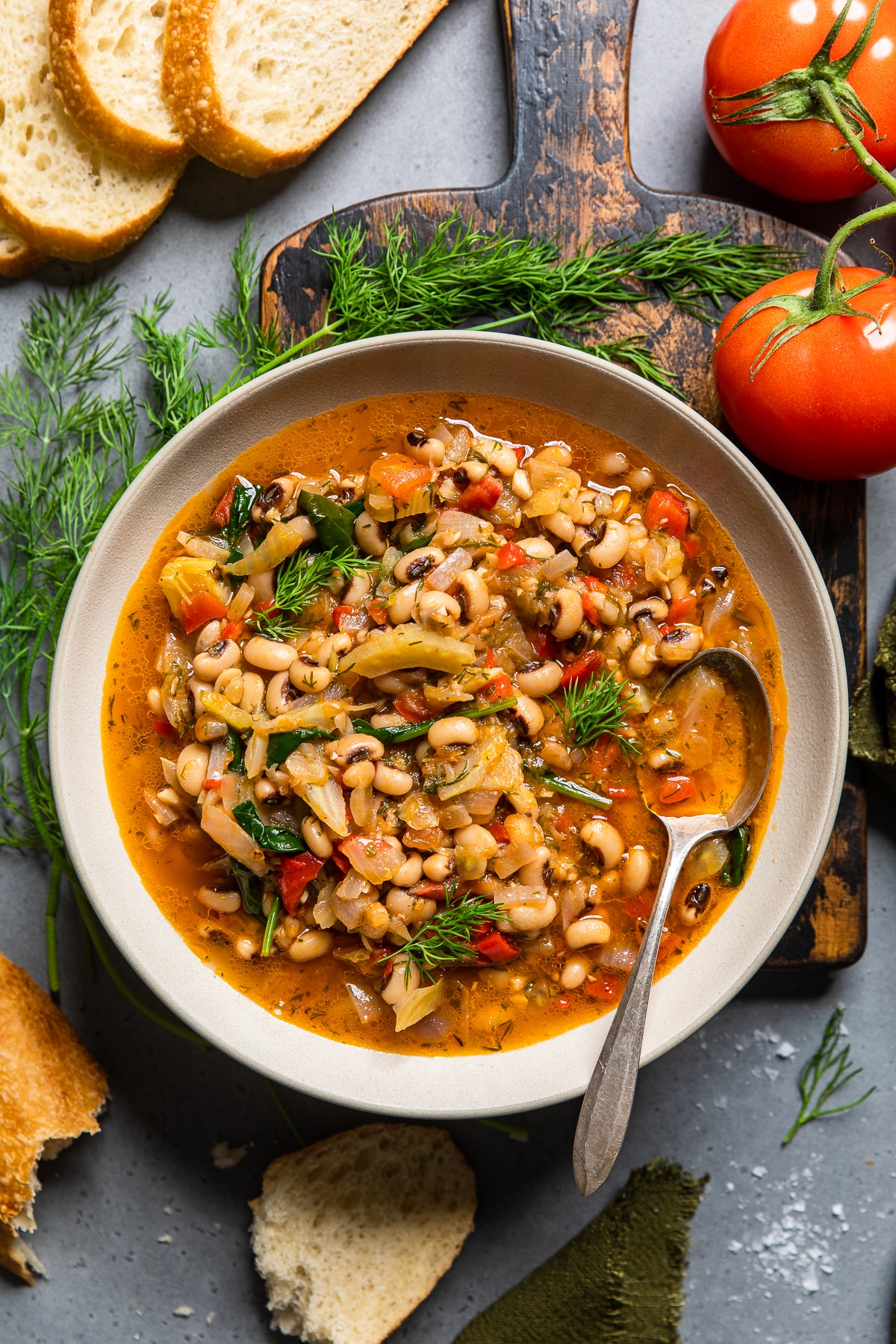

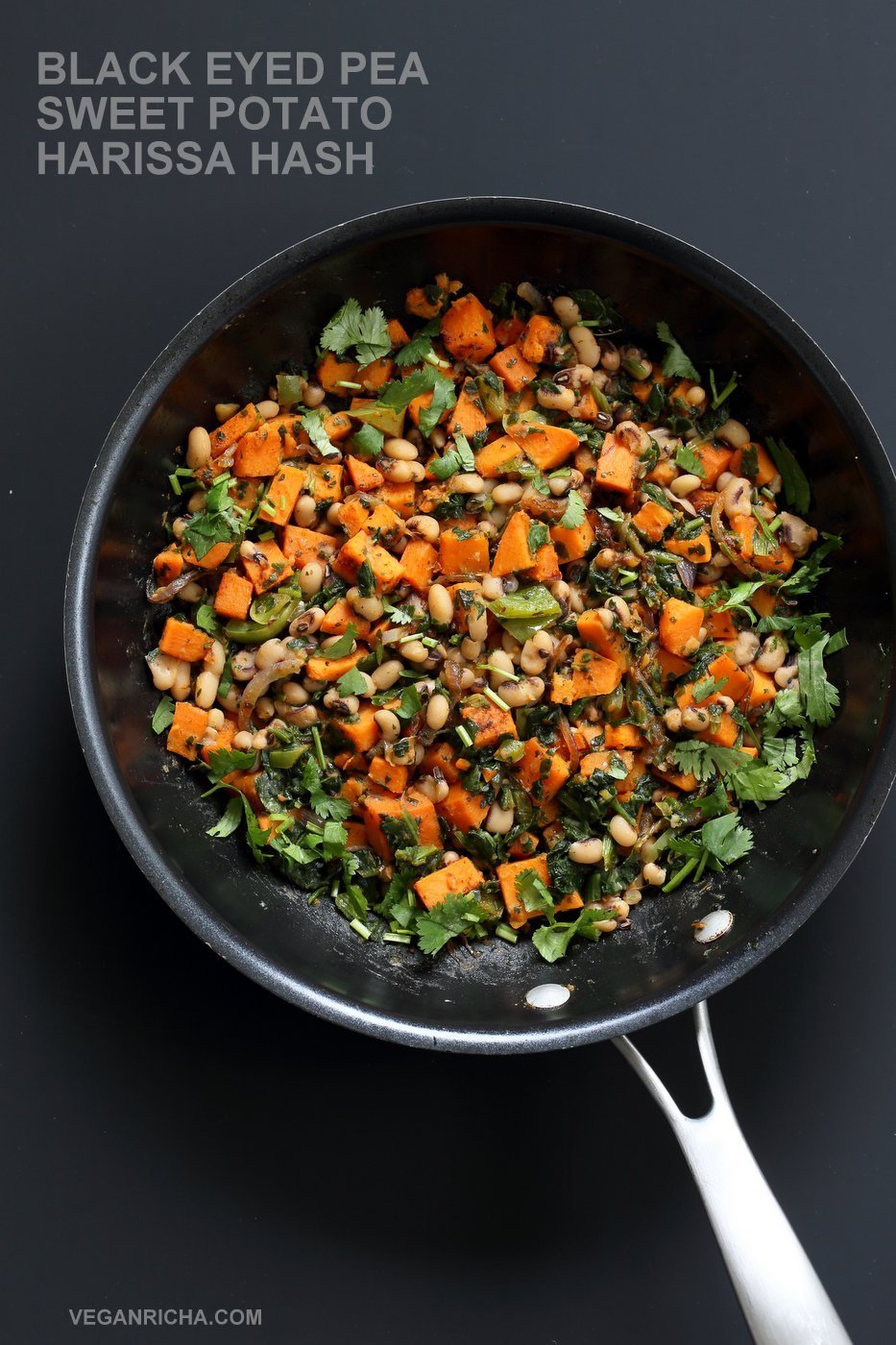

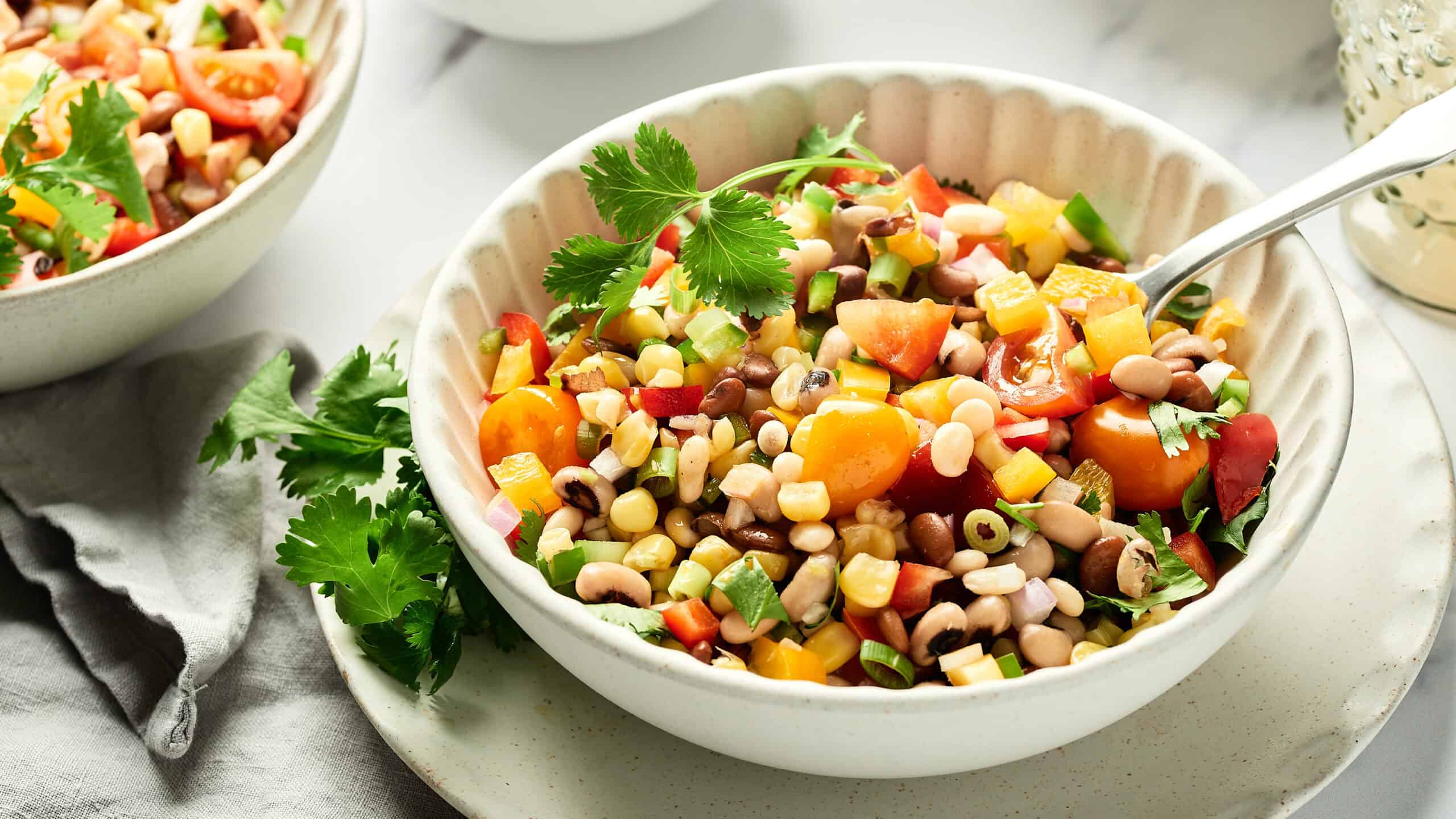
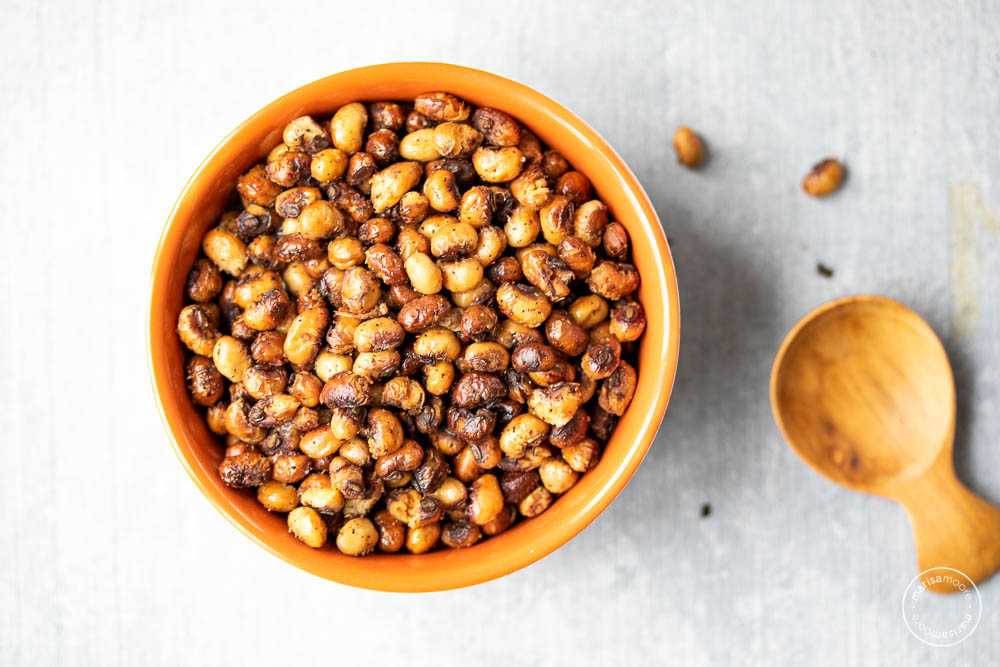
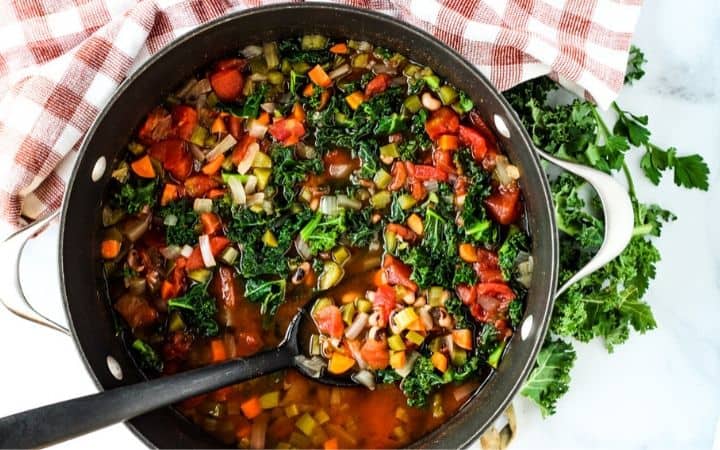
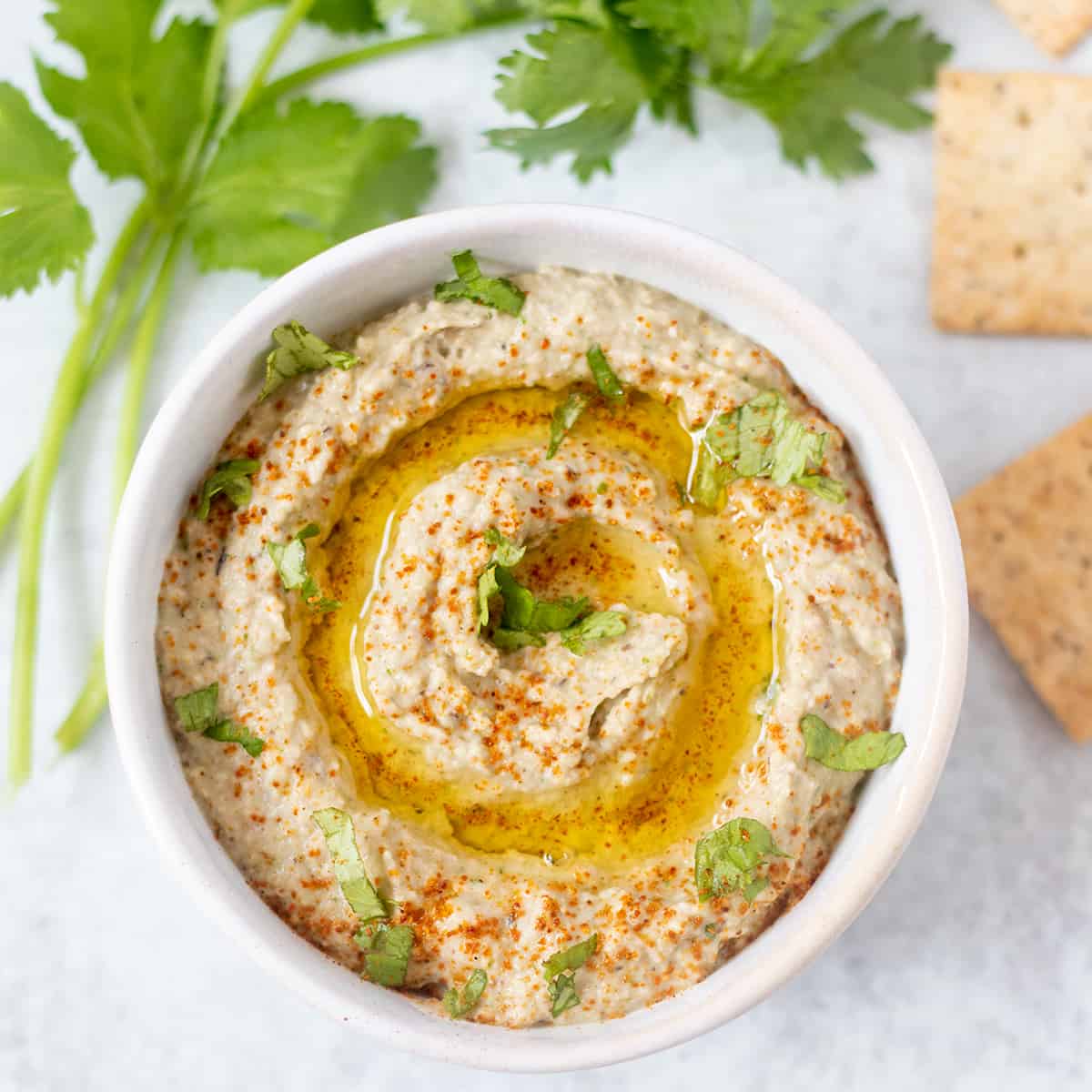
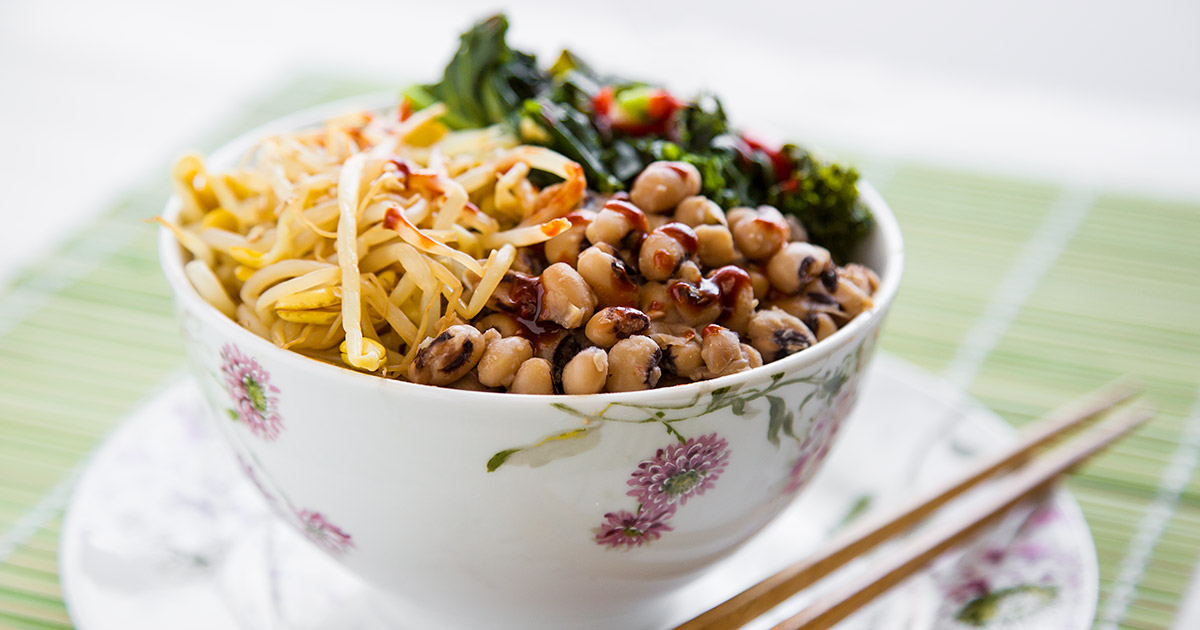
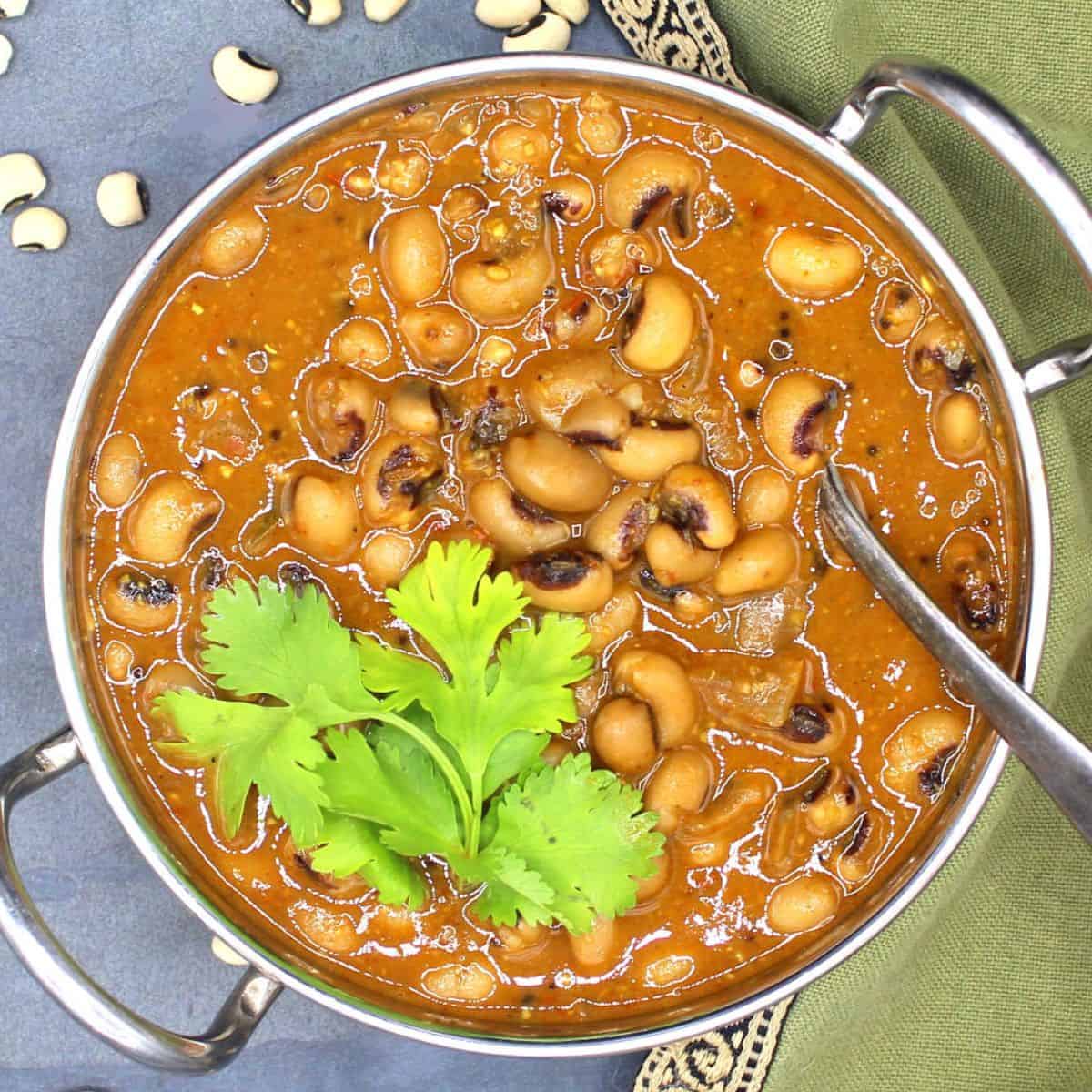
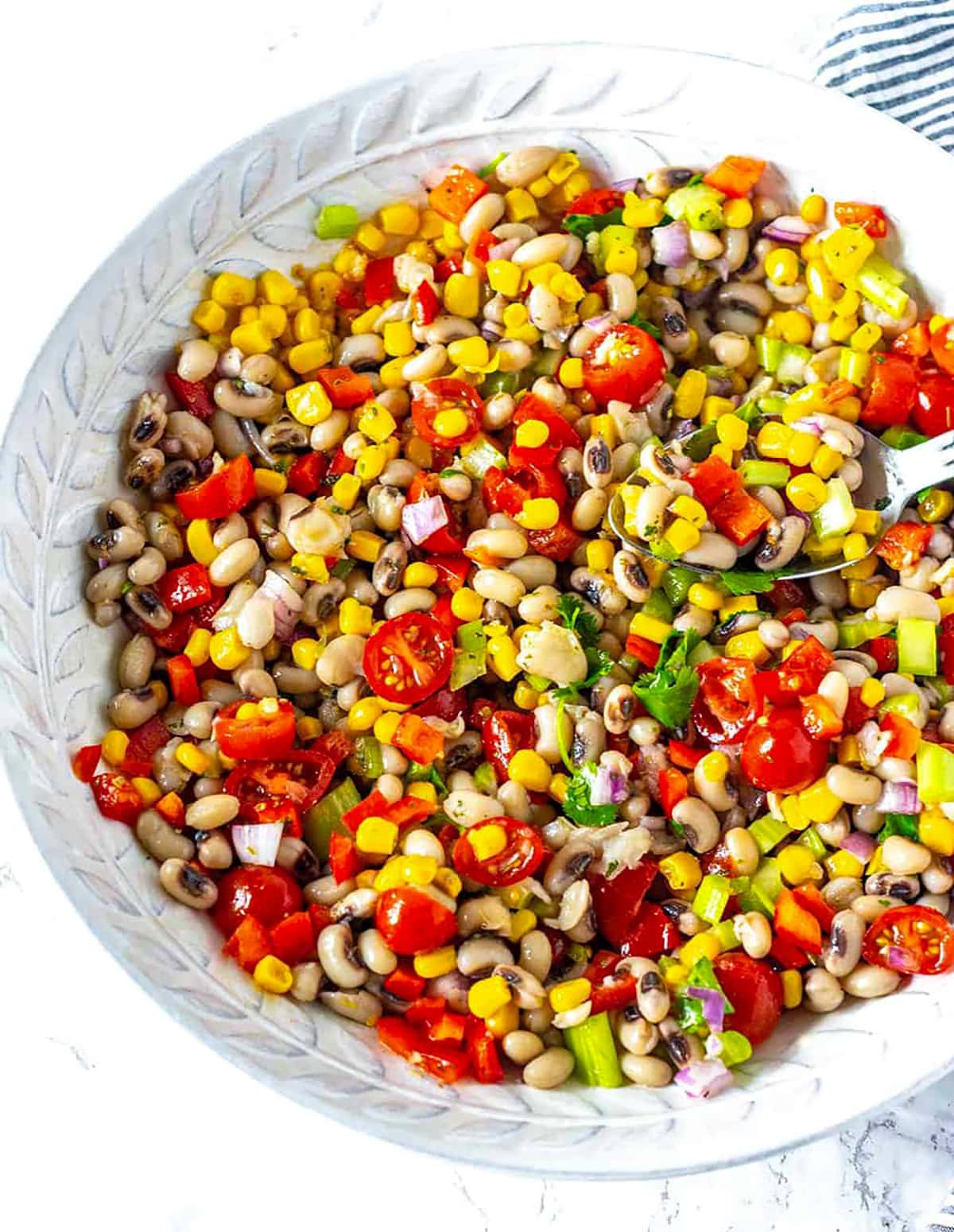

Bringing It All Together
More than a simple source of protein, black-eyed peas are cherished for their versatility and historical significance. From comforting weeknight dinners to celebrations like Juneteenth, Kwanzaa, and Mardi Gras, these humble legumes have long been a symbol of community, resilience, and good fortune.
By trying these plant-based black-eyed pea dishes, you're not only enjoying delicious, protein-packed meals but also honoring a rich cultural heritage.
Cook with love, share with friends, and celebrate every bite—one bowl at a time.

More Bean Inspo





Meat Alternatives



